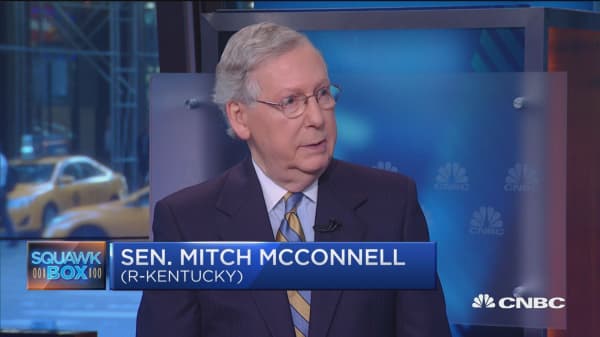On Wednesday's edition of "Squawk Box," Senate Majority Leader Mitch McConnell made the claim that the average American is worse off today than in 2007 … and worse off than when President Barack Obama took office in early 2009.
He also noted that the economy has not enjoyed the typical "V-Shaped recovery" that often follows deep recessions, also a failing of the current Administration.








